The Epiphany, also known as Theophany in the East, is a Christian feast day that celebrates the revelation of God incarnate as Jesus Christ. In Western Christianity, the feast commemorates the Magi’s visit to the Christ Child, and thus Jesus’ physical manifestation to the Gentiles. In Eastern Christianity, Theophany commemorates the baptism of Jesus in the Jordan River, seen as his manifestation to the world as the Son of God.
Epiphany is celebrated 12 d ays after Christmas, on January 6th or Sunday between January 2 and 8. For 2024, if Epiphany is celebrated on a Sunday in the Catholic Church, it would be on January 7th.
ays after Christmas, on January 6th or Sunday between January 2 and 8. For 2024, if Epiphany is celebrated on a Sunday in the Catholic Church, it would be on January 7th.
Historical Context
The Epiphany has been celebrated since the end of the second century, even before the Christmas holiday was established. It is commonly known as Twelfth Night, Twelfth Day, or the Feast of Epiphany. It means ‘manifestation’ or ‘showing forth’. It is also called Theophany (‘manifestation of God’), especially by Eastern Christians.
Biblical Reference
The biblical story referenced during this celebration is from Matthew 2:1-12, which narrates the story of the Magi (or three wise men) – Melchior, Caspar and Balthazar – who followed a bright star that led them to Christ.
Significance
Epiphany is an important feast in the liturgical calendar of the Catholic Church. It signifies God’s physical manifestation to all people through his son Jesus Christ. The visitation of the Magi symbolizes that Jesus was recognized as king by Jewish shepherds and Gentile wise men.
Liturgical Observance
During Mass on Epiphany, the Gospel reading recounts the journey of the Magi. The priest’s homily often reflects on the significance of the Magi’s visit and the importance of recognizing Jesus as our Savior. The liturgical color for Epiphany is white, symbolizing purity, holiness, and joy.
Reflecting on Epiphany as Christians, we are invited to ponder on the manifestation of Jesus in our own lives. Just as the star guided the Magi to Jesus, God’s grace guides us towards His son. We are invited to recognize Jesus daily and be open to His guidance and love. It also encourages us to be like the Magi, who were willing to journey far and seek Christ.
Epiphany also has a communal aspect. It calls for Christians to be ‘stars’ guiding others towards Jesus. As we celebrate Epiphany, we are reminded to share God’s love with others and manifest Christ in our actions.
In conclusion, Epiphany is a celebration of God’s manifestation in Jesus Christ. As we reflect on Epiphany 2024, we are called to recognize God’s presence in our lives and guide others towards Him.
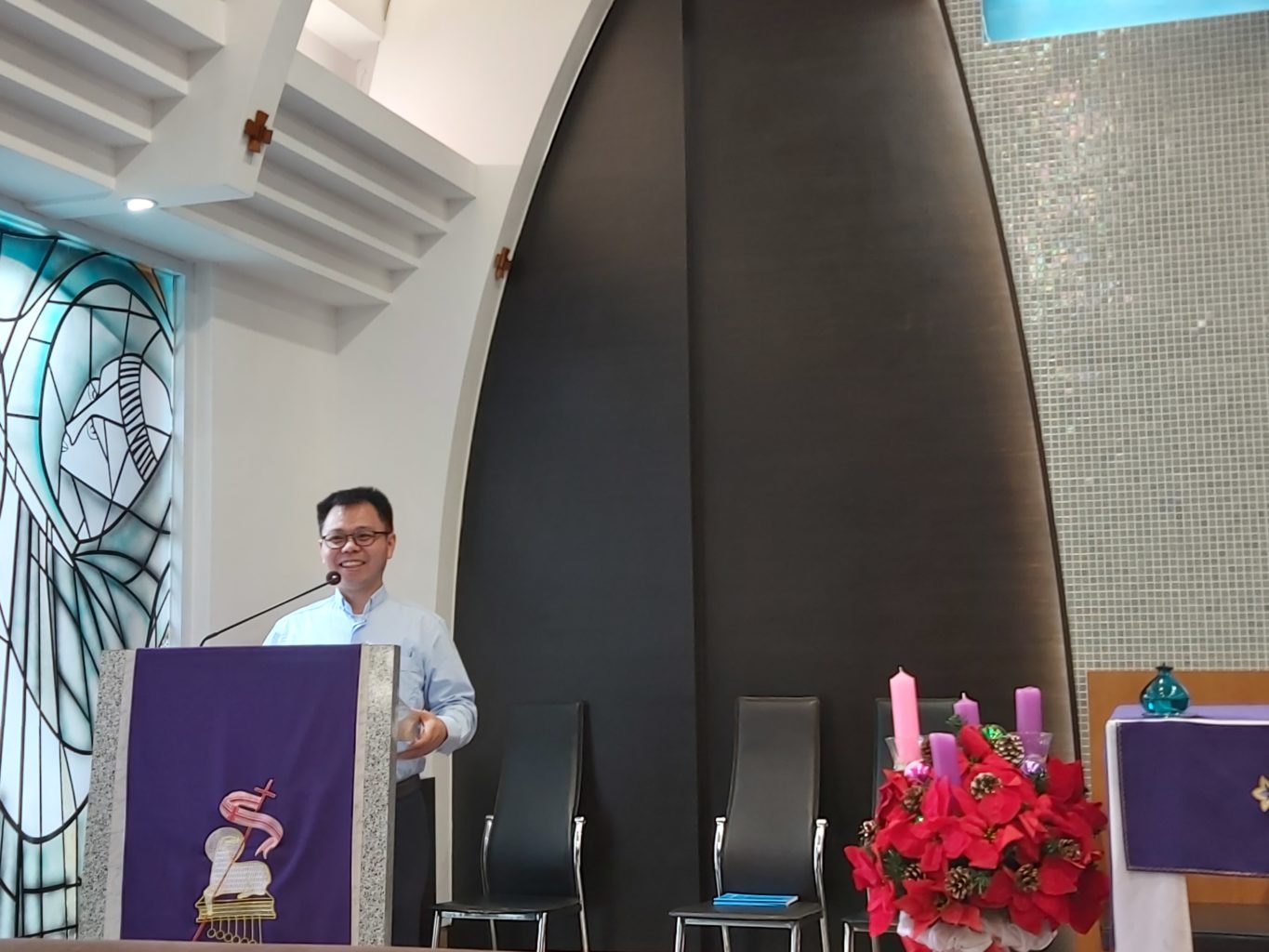
Advent is a time reminding us the importance of Christ in our lives, preparing to celebrate Christ’s birth at Christmas, and referring to his second coming at a future time. In keeping with these principles, the priory held a retreat on December 16, 2023 for the student brothers on the theme of “Detachment or Vow of Poverty.” The preacher, Fr. Hyacinth He, O.P. stressed on that point with his personal experiences. In the afternoon, the brothers received the sacrament of reconciliation. The recollection was ended with adoration and vespers.
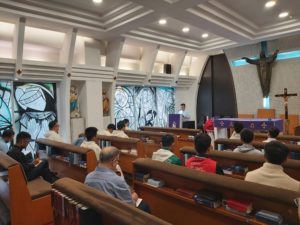
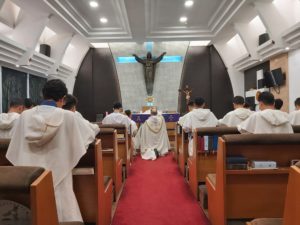
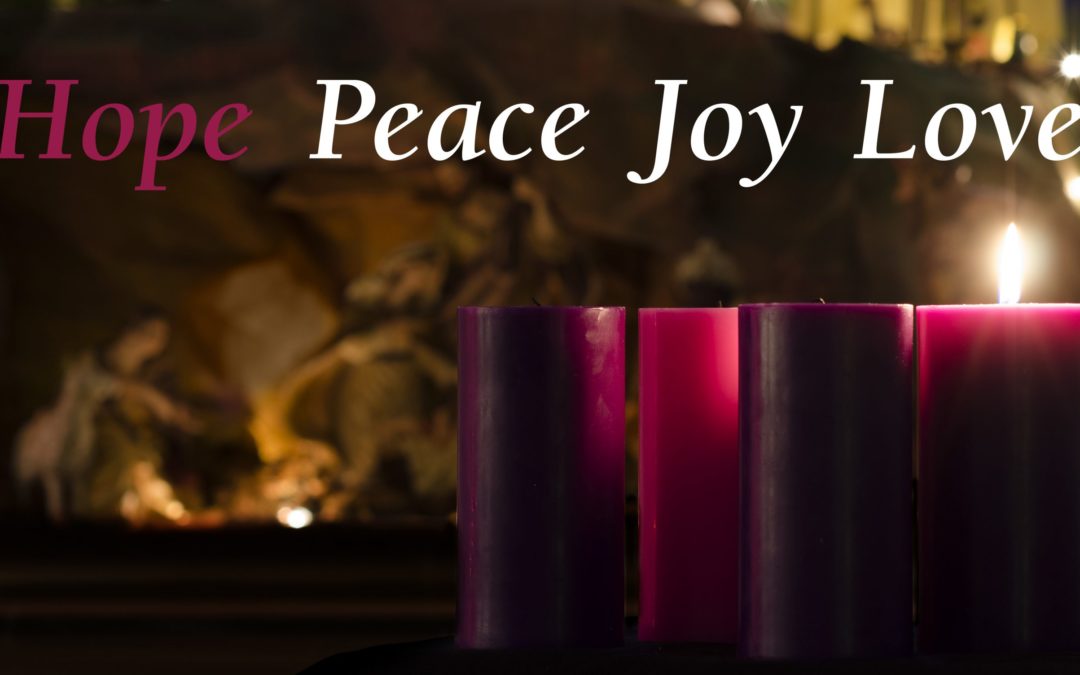
“Hope, Peace, Joy, and Love,”
Advent celebration is a significant time in the Christian liturgical calendar that marks the anticipation and preparation for the birth of Jesus Christ. It is important to meditate on the theme of Advent.
Advent: A Time of Hope:
Hope is a central theme during the Advent season. It symbolizes the anticipation of the coming of Christ and the promise of salvation. The Advent wreath, with its four candles representing the weeks leading up to Christmas, serves as a visual reminder of this hope. As Christians light each candle, they are reminded of the hope that Christ’s birth brings to the world. The prophet Isaiah’s words, “The people who walked in darkness have seen a great light” (Isaiah 9:2, NIV), encapsulate the essence of hope during Advent.
Advent: A Time of Peace:
Peace is another significant theme during Advent. It represents the tranquillity and harmony that Christ’s birth brings to humanity. The birth of Jesus is often referred to as the “Prince of Peace” (Isaiah 9:6). During this season, Christians are encouraged to seek inner peace and promote peace in their communities. Advent season serves as a reminder to reconcile with others, forgive, and strive for unity. The angelic proclamation of “Glory to God in the highest, and on earth peace, goodwill toward men” (Luke 2:14) resonates deeply during this time.
Advent: A Time of Joy:
Joy is a theme that permeates the Advent season. It represents the overwhelming happiness and delight that comes with the anticipation of Christ’s birth. The birth of Jesus is seen as a source of great joy, as it brings salvation and redemption to humanity. Advent season encourages believers to embrace this joy and share it with others. The angel’s words to the shepherds, “Do not be afraid. I bring you good news that will cause great joy for all the people” (Luke 2:10), encapsulate the essence of joy during Advent.
Advent: A Time of Love:
Love is a fundamental theme during Advent. It represents the unconditional love of God, who sent His Son to the world as a demonstration of His love for humanity. Advent season calls Christians to reflect on this love and to extend it to others. It is a time to show compassion, kindness, and generosity to those in need. The verse, “For God so loved the world that he gave his one and only Son” (John 3:16), encapsulates the essence of love during Advent.
To sum up, the Advent celebration holds immense significance in the Christian faith as it prepares believers for the birth of Jesus Christ. The themes of hope, peace, joy, and love are central to this season, reminding Christians of the profound impact of Christ’s birth on humanity. Advent serves as a time of reflection, anticipation, and spiritual growth, encouraging believers to embrace these themes and embody them in their daily lives. By understanding the essence of Advent and its themes, Christians can deepen their faith and experience a renewed sense of hope, peace, joy, and love during this sacred season.
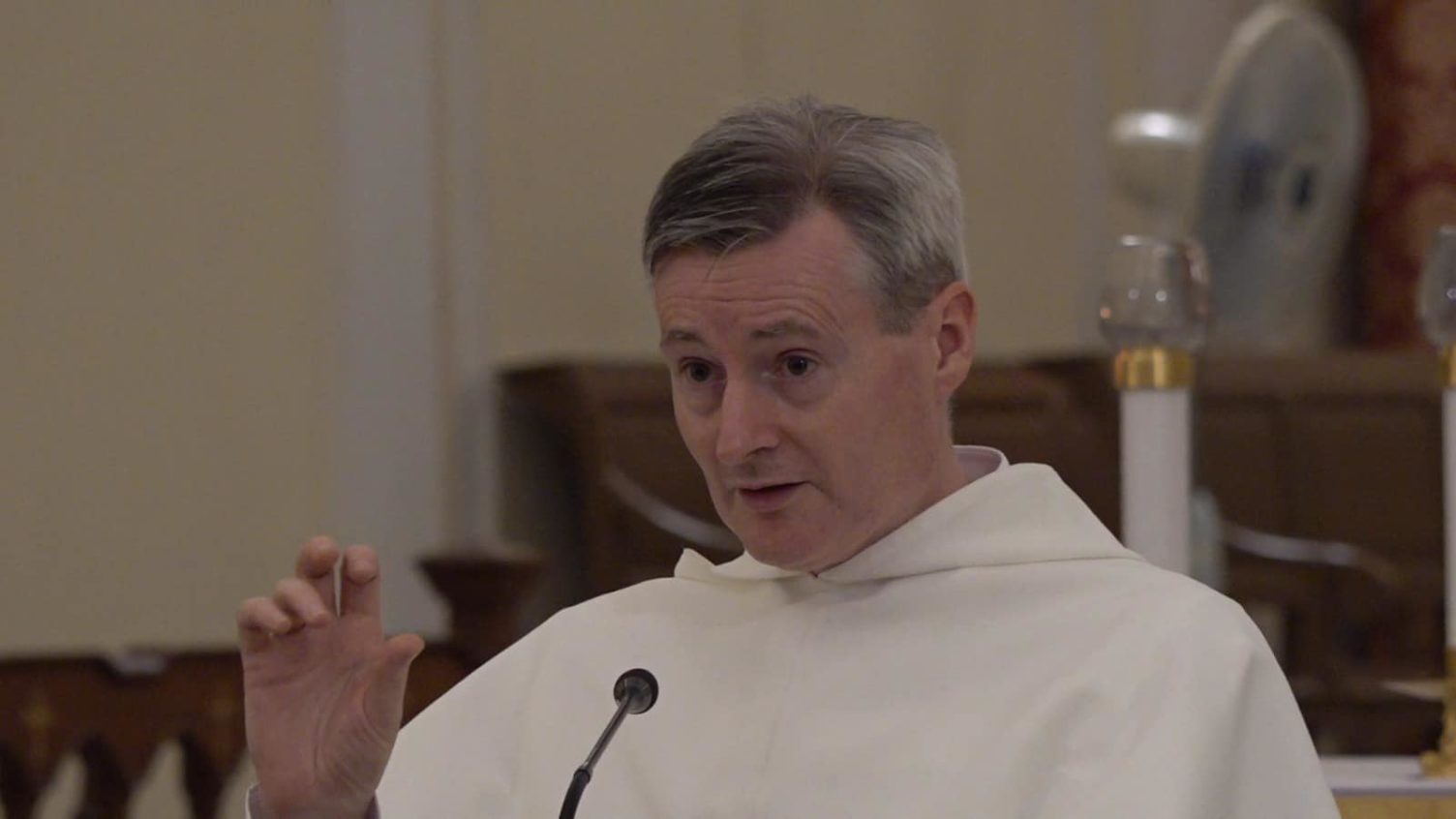
Rev Fr. David Goodill, O.P. (Photo Credit- Faculty of Philosophy and Religious Studies, USJ FB)
The community attended a theology public lecture presented by Rev Fr. David Goodill, O.P., a visiting professor at the University of St. Joseph, on the evening of November 24th. The topic is “Making Hope Real,” which is a reflection on the Christian concept of Hope. The lecture examined how St. Thomas’ understanding of hope is informed by his understanding of the cardinal virtues.
The talk was integrated with the Vespers of the memorial of Saint Andrew Dng-Lc, Priest, and Companions, Martyrs. The magnificent 16th-century St. Dominic Church was filled with the chanting of psalms conducted by the friars.
Students and teachers from the faculty of philosophy and religious studies, including the dean of the faculty, Fr. Cyril Law, as well as sisters from several congregations and other interested parties, were there.
Following the talk, group photos were taken. Indeed, it was an evening rich with intellectual and spiritual nourishments.
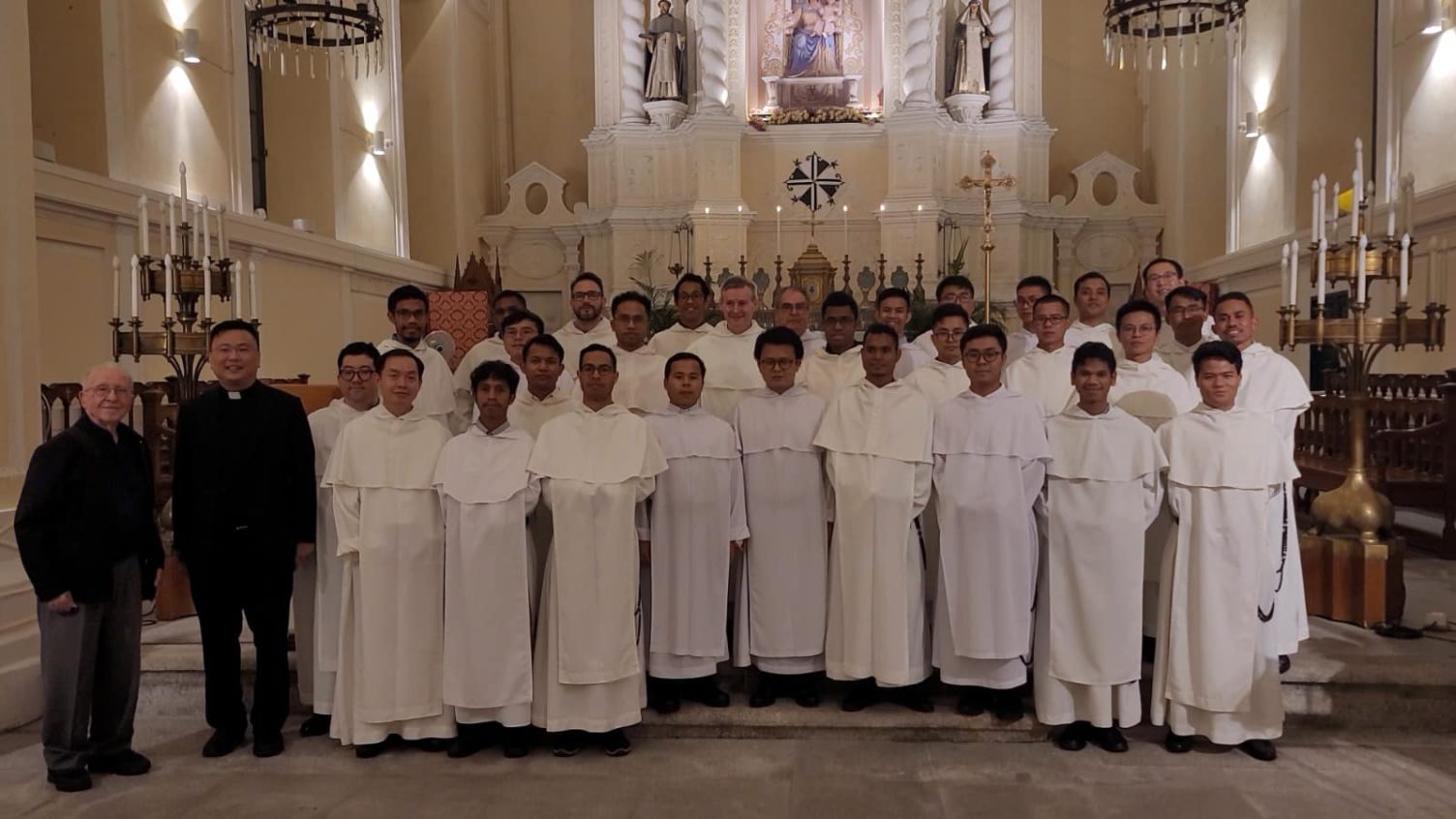
Group photo after lecture (Photo Credit- Faculty of Philosophy and Religious Studies, USJ FB)
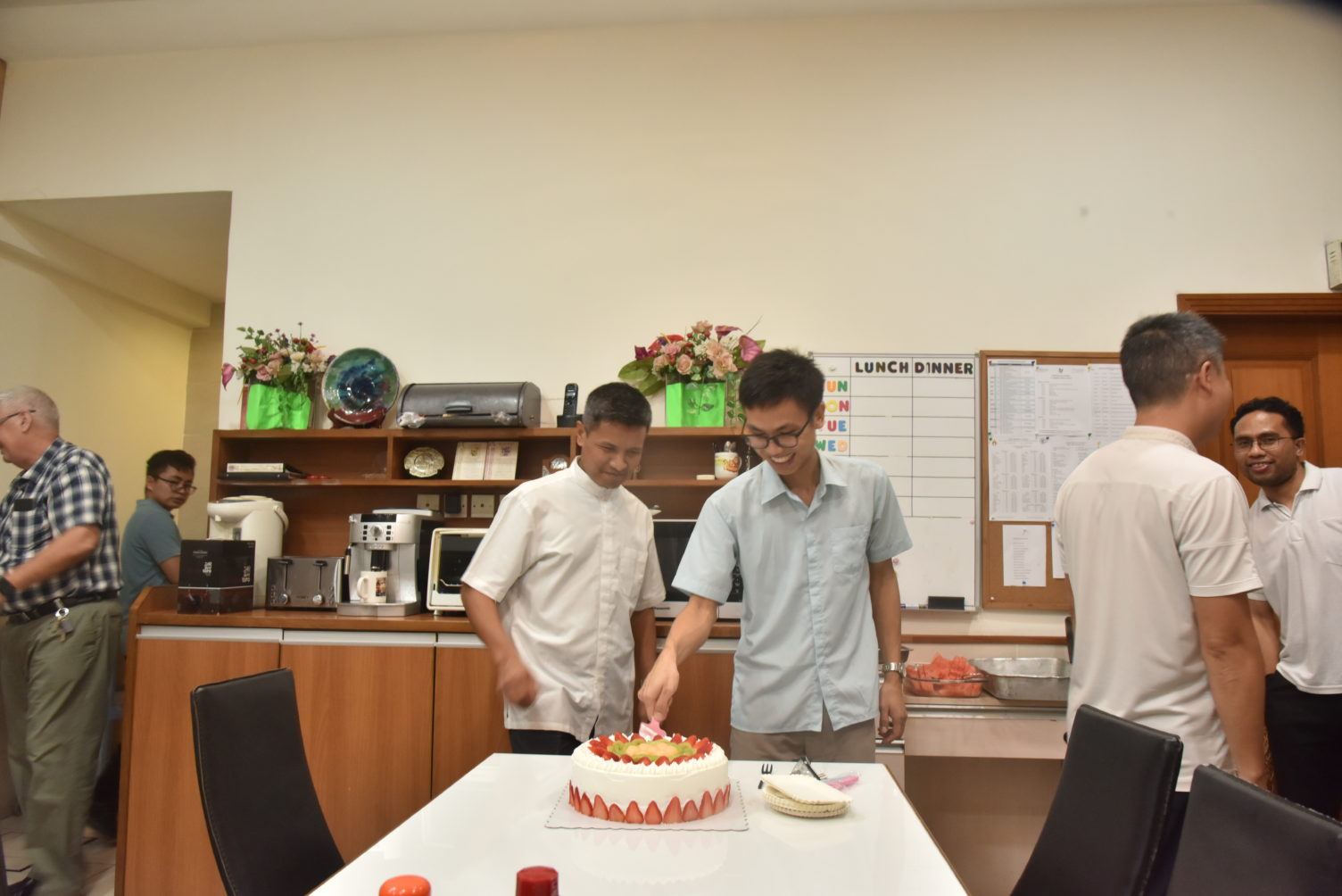
The Priory celebrated the birthdays of November-born fathers and a brother.
The celebrants were Fr. Legido, Fr. Athanasius, Fr. Lawrence and Br.Neri. The community greeted them with warmest wishes on their special day.
It was a joyous occasion that brought everyone together in celebration of community life and fraternity.

The Priory recently celebrated the birthdays of some of the brothers, including the master of the student brothers and two kitchen staffs.
The birthdays’ celebrants of October were Fr. Edmond, Fr. Paul, Br. Francis Kim, Br. John Ai and Br. Jean Carlos. The community wished them ” Ad Multos Annos.”
It was a joyous occasion that brought everyone together in celebration of community life and fraternity.
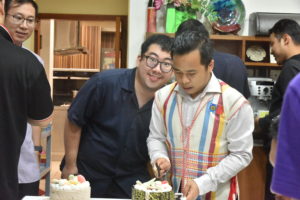

 ays after Christmas, on January 6th or Sunday between January 2 and 8. For 2024, if Epiphany is celebrated on a Sunday in the Catholic Church, it would be on January 7th.
ays after Christmas, on January 6th or Sunday between January 2 and 8. For 2024, if Epiphany is celebrated on a Sunday in the Catholic Church, it would be on January 7th.









